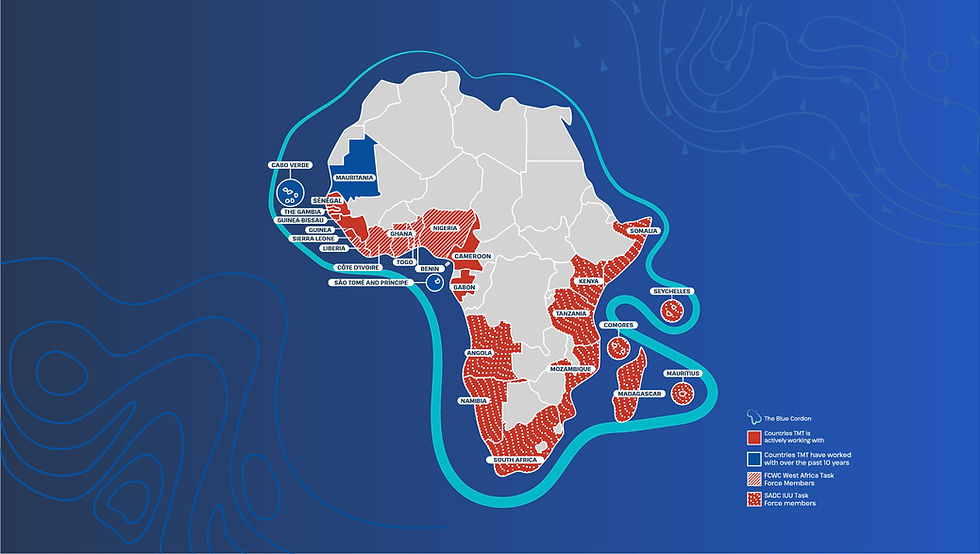Why inter-regional cooperation is the next big thing for IUU
- vkoutob
- Oct 17, 2025
- 2 min read

TMT’s West and Central Africa Programme Lead, Vivian Koutob, reflects on working with African coastal states to tackle illegal fishing - turning shared challenges into shared strengths.
In the photo below, you see four organisations — Blue Ventures, PRCM, TMT, and Global Fishing Watch — each playing a vital role in supporting regional bodies and national authorities across West Africa to strengthen ocean governance and fisheries management.

If you’ve been working in fisheries, marine conservation, or sustainable resource management in this region, you already know the impact these organisations have had. But during the Conference of Ministers of the Sub-Regional Fisheries Commission (SRFC), earlier this month one message stood out more clearly than ever:
We all want the same thing — secure livelihoods, effective tools to stop illegal operators, and healthy oceans for future generations.
Of course, our approaches differ. Some focus on policy reform, others on implementation. Some build the technology and tools whilst others ensure those tools are used. But one truth unites us — we can’t do this in isolation.
The oceans are connected. So are the operators who move between them. Whether it’s the Atlantic, Pacific, or Indian Ocean, challenges like illegal, unreported, and unregulated (IUU) fishing don’t stop at regional boundaries.
So how do we respond to operators who “region-hop” to avoid scrutiny? We build inter-regional systems — mechanisms that don’t just share data but actively track, investigate, and hold offenders accountable wherever they operate. Systems that help us deny port access and build strong cases for prosecution.
That’s what inter-regional cooperation is all about: strength through connection.
Building the Regional Record
Leading regional processes can be both exhausting and deeply rewarding. When I first took on this role, I thought things would get easier with time — spoiler: they didn’t. Aligning national priorities with regional ambitions takes continuous balance, strategy and trust.
Right now, the Fisheries Committee for the West Central Gulf of Guinea (FCWC) is setting up the Regional Record of Authorised Fishing Vessels (RRAFV) — a mechanism to register all licensed vessels operating in our waters.
What began as a simple idea to sustain the Regional MCS Centre has evolved into a regional best practice, standing alongside initiatives like the SADC MCSCC’s regional record.
With the strong backing of our Member States through the Monrovia Declaration, our partners (including Stop Illegal Fishing), and donors (including Norway), I believe we’re on the right path. There’s still a long way to go, but I’m proud to be part of this journey — Because in the end, our greatest strength lies not just in working harder, but in working together.
Read more about TMT here




